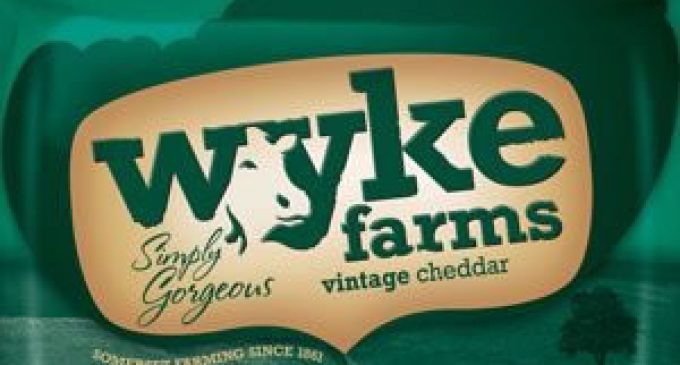Wyke Farms leads the food industry in sustainable manufacturing

Britain’s largest family owned cheese maker Wyke Farms plans to lead the “green revolution in grocery” through its 100% green strategy which looks at energy, water and waste issues within the business. Leigh Stringer talks to managing director and third generation family member, Richard Clothier.
Making farmhouse cheddar since 1861 in the heart of the Somerset countryside, Wyke Farms understands the need to preserve its surroundings and why sustainability is an essential element to the future success of its operations.
A series of bold investments and operational measures have backed up its vision of becoming a truly sustainable business. The latest being the launch of its new biogas plant, which will convert 75,000 tonnes of biodegradable waste materials from the farm and dairy per year, predominantly cow manure, into energy.
Generating this renewable energy will allow Wyke Farms to become entirely self-sufficient in electrical energy and gas and, in addition, will return renewable gas and electricity to the grid to offset third party usage.
Clothier said: “The plant is a milestone in the journey for what we call 100% green but while this drives our green energy strategy, we are also looking at other important issues such as the reuse of factory water, driving energy efficiency’s within the dairy and waste reduction”.
Dedicated to the overall sustainability of the business, water recovery and waste reduction have been on the business’ agenda for some time but recent technology investments are now driving efficiency in all areas.
“We’ve just installed a membrane process on the end of the plant which polishes up all the water for re-use for washing etc. And that’s a big thing for us because we operate off bore holes, so its water that we won’t be dragging out of the water table.
“The packaging waste issue is also important. We’ve cut 25% off our packaging usage in the last three years just by redesigning self-ready boxes that we send out to stores and looking at different ways of putting the cheese into the films,” added Clothier.
These initiatives are part of Wyke Farms plans to become one of the ‘greenest’ grocer’s on the market but sustainability was initially a cost cutting measure, says Clothier.
“I became a bit of an environmentalist through the back door, because I could see through a process of cost cutting and driving efficiency’s that the knock on effect was that it’s good for the environment”.
On the green energy side, it has been about hedging the cost of energy and removing insecurity but becoming fully self-reliant is also contributing to the overall reputation of the brand and the raised awareness on environmental issues from customers.
Referring to a recent report by market research company Mintel, Clothier highlighted figures showing that 15% of food shoppers are looking for green credentials in the brands and foods they buy.
“A brand like Wyke Farms with all the history and the providence, we’re ideally positioned to meet those green purchase drivers that shoppers are clearly looking for. I think there is a real opportunity for the Wyke business to be one of the greenest brands in grocery and tick those boxes for shoppers”.
Conflicting interests in the retail sector, however, are making it difficult for some food manufacturers to develop sustainable products says Clothier, adding that environmental strategies agreed by management at some large organisations isn’t always filtered through to the work in practice.
“I get frustrated with the retailers at times because on one hand they say they want to improve the environment but then send a specification through for boxes or shelf-ready packaging (SRP) which is twice as heavy as the ones we use and include things like plastic inserts. That’s one of those examples where adding costs is bad for the environment”.
“There are a lot of limitations to what a label can do to be truly sustainable because the major supermarkets operate in a rigid system across a wide range of products. On one hand they say they have a commitment to be environmental but then they say to us the product has to be in an over-designed shelf-ready pack with a plastic insert in it.
“Whereas on our own brand we can control what shelf-ready packs we put in and we don’t have to put plastic insert trays to use on the shelf. So there is much more freedom for brands like ours to really lead the way in cutting things like packaging waste,” he added.
The retail sector is not the only challenge the food manaufacturers face to become a sustainable industry says Clothier. The industry itself must take advantage of the Government’s green energy incentives if it is to progress as a resource efficient sector.
“We’d like to see more manufacturers taking advantage of the Government’s green energy incentives, putting more solar panels on south facing roofs and using their waste streams for Anaerobic Digestion. Otherwise, all the pensions funds and big investment companies are going to use up all the incentives, including feed-in-tariffs and RHI’s and the manufacturers will miss out.
“And, quite often, when the manufacturers use these incentives it’s a better fit – like solar panels on the roofs of industrial estates where the energy is being used is a better use of Government subsidies compared to acres and acres of solar panels on grass land where crops could be grown,” he said.


































